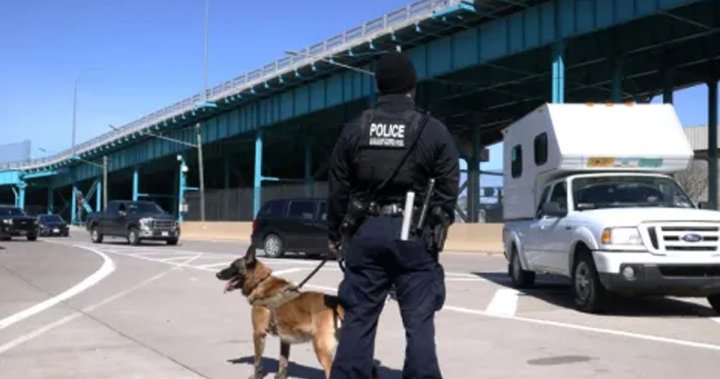In a stunning development that underscores the ongoing challenges of cross-border drug trafficking, U.S. Customs and Border Protection officers made one of the largest cocaine seizures in recent years at the Ambassador Bridge connecting Detroit and Windsor. The operation, which concluded late Wednesday evening, resulted in the confiscation of approximately 130 kilograms of cocaine with an estimated street value exceeding $16 million.
“This represents a significant blow to drug trafficking organizations attempting to exploit our shared border,” said Regional CBP Director Marcus Thompson in a statement released Thursday morning. “Our officers’ vigilance and expertise prevented these dangerous substances from reaching American communities.”
According to authorities, the narcotics were discovered during a routine secondary inspection of a commercial truck carrying automotive parts from Canada to the United States. Officers noticed irregularities in the cargo manifest that prompted a closer examination using specialized scanning equipment and canine units.
The driver, a 48-year-old Canadian citizen whose identity has not been released pending formal charges, was taken into custody immediately. Sources familiar with the investigation indicate he may be connected to a larger trafficking network with ties to both countries, though this information has not been officially confirmed by law enforcement agencies.
This seizure comes amid growing concerns about increased drug trafficking along the northern border. Data from the Canada Border Services Agency shows a 43% rise in cocaine interceptions at major crossing points in the past 18 months, with the Ambassador Bridge becoming an increasingly favored route for smuggling operations.
“What we’re seeing is an adaptation of trafficking methods in response to enhanced security measures,” explained Dr. Emily Richardson, a criminal justice professor at the University of Toronto specializing in transnational crime. “The pandemic temporarily disrupted established smuggling routes, but organizations have clearly regrouped and are testing vulnerabilities in our border infrastructure.”
The timing of this seizure coincides with ongoing discussions between Canadian and American officials about modernizing border security protocols and enhancing information sharing between agencies. Last month, representatives from both countries met in Ottawa to discuss technological upgrades to detection systems at high-volume crossing points.
The economic implications of drug interdiction at the Ambassador Bridge extend beyond the immediate law enforcement victory. As one of North America’s busiest commercial border crossings with approximately $323 million in goods crossing daily, any disruption to legitimate trade can have cascading effects throughout supply chains in both countries.
“While thorough inspections are absolutely necessary, maintaining efficient flow of commerce remains equally important,” noted Michael Reeves, president of the Detroit-Windsor Business Alliance. “This case demonstrates how targeted intelligence-based enforcement can achieve security objectives without significantly impeding legitimate cross-border trade.”
The investigation has now expanded to include the U.S. Drug Enforcement Administration and the Royal Canadian Mounted Police, who are working to identify other members of the trafficking organization. Sources indicate that forensic analysis of the seized cocaine may provide valuable intelligence regarding its origin and distribution network.
As our communities continue to grapple with the devastating impacts of drug addiction and related crimes, we must consider: How can we better balance the dual imperatives of maintaining secure borders while preserving the efficient cross-border commerce that sustains thousands of jobs in both countries?


















